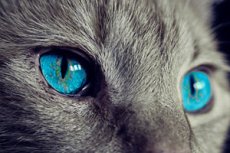New publications
Cats have proven to be excellent nutritionists
Last reviewed: 04.07.2025

All iLive content is medically reviewed or fact checked to ensure as much factual accuracy as possible.
We have strict sourcing guidelines and only link to reputable media sites, academic research institutions and, whenever possible, medically peer reviewed studies. Note that the numbers in parentheses ([1], [2], etc.) are clickable links to these studies.
If you feel that any of our content is inaccurate, out-of-date, or otherwise questionable, please select it and press Ctrl + Enter.

The new research by scientists will certainly be of interest to cat owners, because the nutrition of their pet is an important aspect necessary for the health, strength and energy of the animal, so caring owners will be interested to know that their pets can make up their own diet and are well versed in the nutritional value of products.
A team of scientists from Waltham Research Centre and the Institute of Life Sciences at Massey University have discovered that domestic cats can combine their own food, giving them the ability to create the healthy diet they need.
Provided that the cat is provided with a variety of products, and not just dry food, it can independently determine the amount of proteins, fats and carbohydrates it needs.
The results of the scientists’ work were published in the scientific journal “Comparative Physiology B”.
Pets have the ability to regulate their macronutrient intake by regulating and controlling their choices despite varying nutrient levels and food textures.
In a three-part series of experiments, cats were fed different textures of food, both dry and wet, and were given different portion sizes of food.
During the study, cats were given the same amount of time on dry and wet food, and in between they were given portions that included both wet and dry food. The results were as follows: regardless of the diet, cats in any case consumed the same amount of proteins, fats and carbohydrates, without deviating from their norm.
“Having conducted a series of experiments with nutrition, we discovered an interesting fact - all animals chose products in such a way as to satisfy the daily needs of the body and receive 52% proteins, 36% fats and 12% carbohydrates,” the experts comment on the data obtained.
The results of the current study confirmed the findings of a previous study published in the Journal of Experimental Biology in 2011, showing that domestic cats have similar dietary choices to wild cats. This means that even being “domesticated” does not affect the cats’ ability to regulate their intake of macronutrients, which is exactly what their wild ancestors naturally ate.
The author of the study, Dr Adrian Hewson-Hughes, said: “Our experiment has important implications for cat owners. It demonstrates their excellent ability to select and combine wet and dry food to achieve the ideal balance of protein, fat and carbohydrates for their body. As for cat food, wet food currently contains more fat and protein, while dry food is dominated by carbohydrates. Providing cats with a combination of dry and wet food gives pets the opportunity not only to independently and, as we have seen, quite accurately, maintain the level of nutrients in the body, but also to take excellent care of their own health, which corresponds to their natural predatory nature.”
